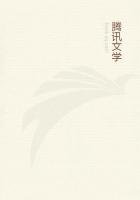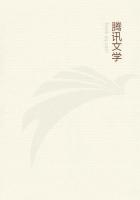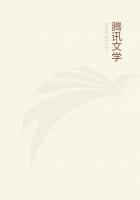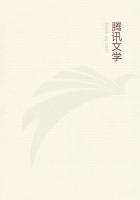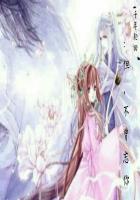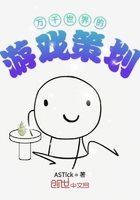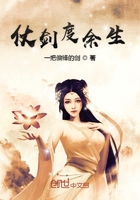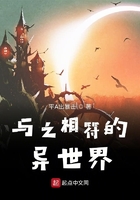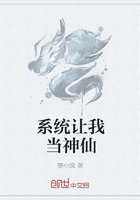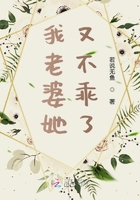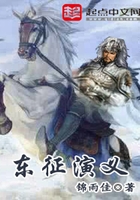The myth of the great Theban hero, Oidipous, well illustrates the multiplicity of conceptions which clustered about the daily career of the solar orb. His father, Laios, had been warned by the Delphic oracle that he was in danger of death from his own son. The newly born Oidipous was therefore exposed on the hillside, but, like Romulus and Remus, and all infants similarly situated in legend, was duly rescued. He was taken to Corinth, where he grew up to manhood. Journeying once to Thebes, he got into a quarrel with an old man whom he met on the road, and slew him, who was none other than his father, Laios. Reaching Thebes, he found the city harassed by the Sphinx, who afflicted the land with drought until she should receive an answer to her riddles. Oidipous destroyed the monster by solving her dark sayings, and as a reward received the kingdom, with his own mother, Iokaste, as his bride. Then the Erinyes hastened the discovery of these dark deeds;Iokaste died in her bridal chamber; and Oidipous, having blinded himself, fled to the grove of the Eumenides, near Athens, where, amid flashing lightning and peals of thunder, he died.
Oidipous is the Sun. Like all the solar heroes, from Herakles and Perseus to Sigurd and William Tell, he performs his marvellous deeds at the behest of others. His father, Laios, is none other than the Vedic Dasyu, the night-demon who is sure to be destroyed by his solar offspring In the evening, Oidipous is united to the Dawn, the mother who had borne him at daybreak; and here the original story doubtless ended. In the Vedic hymns we find Indra, the Sun, born of Dahana (Daphne), the Dawn, whom he afterwards, in the evening twilight, marries. To the Indian mind the story was here complete; but the Greeks had forgotten and outgrown the primitive signification of the myth. To them Oidipous and Iokaste were human, or at least anthropomorphic beings; and a marriage between them was a fearful crime which called for bitter expiation. Thus the latter part of the story arose in the effort to satisfy a moral feeling As the name of Laios denotes the dark night, so, like Iole, Oinone, and Iamos, the word Iokaste signifies the delicate violet tints of the morning and evening clouds. Oidipous was exposed, like Paris upon Ida (a Vedic word meaning "the earth"), because the sunlight in the morning lies upon the hillside.[106] He is borne on to the destruction of his father and the ******uous marriage with his mother by an irresistible Moira, or Fate;the sun cannot but slay the darkness and hasten to the couch of the violet twilight.[107] The Sphinx is the storm-demon who sits on the cloud-rock and imprisons the rain; she is the same as Medusa, Ahi, or Echidna, and Chimaira, and is akin to the throttling snakes of darkness which the jealous Here sent to destroy Herakles in his cradle. The idea was not derived from Egypt, but the Greeks, on finding Egyptian figures resembling their conception of the Sphinx, called them by the same name.
The omniscient Sun comprehends the sense of her dark mutterings, and destroys her, as Indra slays Vritra, bringing down rain upon the parched earth. The Erinyes, who bring to light the crimes of Oidipous, have been explained, in a previous paper, as the personification of daylight, which reveals the evil deeds done under the cover of night. The grove of the Erinyes, like the garden of the Hyperboreans, represents "the fairy network of clouds, which are the first to receive and the last to lose the light of the sun in the morning and in the evening; hence, although Oidipous dies in a thunder-storm, yet the Eumenides are kind to him, and his last hour is one of deep peace and tranquillity."[108] To the last remains with him his daughter Antigone, "she who is born opposite," the pale light which springs up opposite to the setting sun.
[106] The Persian Cyrus is an historical personage; but the story of his perils in infancy belongs to solar mythology as much as the stories of the magic sleep of Charlemagne and Barbarossa. His grandfather, Astyages, is purely a mythical creation, his name being identical with that of the night-demon, Azidahaka, who appears in the Shah-Nameh as the biting serpent Zohak. See Cox, Mythology of the Aryan Nations, II. 358.
[107] In mediaeval legend this resistless Moira is transformed into the curse which prevents the Wandering Jew from resting until the day of judgment.
[108] Cox, Manual of Mythology, p. 134.
These examples show that a story-root may be as prolific of heterogeneous offspring as a word-root. Just as we find the root spak, "to look," begetting words so various as sceptic, bishop, speculate, conspicsuous, species, and spice, we must expect to find a ****** representation of the diurnal course of the sun, like those lyrically given in the Veda, branching off into stories as diversified as those of Oidipous, Herakles, Odysseus, and Siegfried. In fact, the types upon which stories are constructed are wonderfully few. Some clever playwright--I believe it was Scribe--has said that there are only seven possible dramatic situations; that is, all the plays in the world may be classed with some one of seven archetypal dramas.[109] If this be true, the astonishing complexity of mythology taken in the concrete, as compared with its extreme simplicity when analyzed, need not surprise us.
[109] In his interesting appendix to Henderson's Folk Lore of the Northern Counties of England, Mr. Baring-Gould has made an ingenious and praiseworthy attempt to reduce the entire existing mass of household legends to about fifty story-roots;and his list, though both redundant and defective, is nevertheless, as an empirical classification, very instructive.

